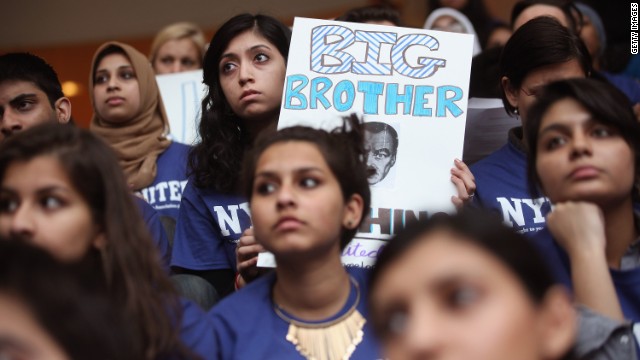By Mark O’Brien
Impunity Watch Reporter, North America
WASHINGTON, United States — The Supreme Court issued a split decision Monday on the controversial Arizona law aimed at deterring illegal immigration.
The court differed on three key provisions of the law. In the majority opinion, Justice Anthony Kennedy said those other portions of the Arizona law could not be enforced due to the federal government’s broad powers in setting immigration policy.
“The national government has significant power to regulate immigration,” Justice Kennedy wrote. “Arizona may have understandable frustrations with the problems caused by illegal immigration while that process (of the federal government figuring out how to best carry out its immigration power) continues, but the state may not pursue policies that undermine federal law.”
Specifically, the three provisions required immigrants to always carry immigration papers, banned illegal immigrants from trying to get work in public places, and allowed police to arrest immigrants without warrants, so long as the officers believed the immigrants were committing crimes that would deport them. The votes on these provisions were either 5-3 or 6-2 in favor of declaring them unconstitutional, with the more conservative justices dissenting.
The justices unanimously upheld, however, the so-called “show me your papers” provision at the core of the law. It requires local law enforcement authorities to determine the immigration status of anyone who’s stopped or arrested, so long as there is “reasonable suspicion” the person is illegally in the United States.
“There is a basic uncertainty about what the law means and how it will be enforced,” Kennedy wrote, emphasizing that state officials must obey all federal laws in checking a person’s immigration status or face additional constitutional challenges.
Opponents fear this portion of the law would lead to racial profiling.
“I know they will not be using that kind of tactic on people with the last name Roberts, Romney, or Brewer, but if your name is something like Gutierrez or Chung or Obama, watch out,” Democratic Rep. Luis Gutierrez of Illinois told CNN. He is a member of the Congressional Hispanic Caucus. “The express goal of the authors of Arizona’s [immigration law] is to make life miserable for immigrants so that they will leave, and a key tool in that effort was upheld by the court.”
Arizona’s immigration law, passed in 2010, was the first of half a dozen states to adopt laws aimed at removing illegal immigrants. Reuters reports that three percent of the country’s illegal immigrants, or about 360,000, live in Arizona. Nevertheless, most of the state’s two million Hispanics are legal residents.
According to CNN, neither the Arizona Department of Public Safety nor the Arizona Association of Chiefs of Police was clear on whether authorities would begin checking drivers’ immigration status while enforcing other laws. Questions were referred to the state’s attorney general’s office.
Despite the split ruling, both parties declared the Court’s ruling a win. President Obama was “pleased” the justices struck down the three key provisions of the law, while Arizona Gov. Jan Brewer, a Republican, called the decision “a victory for the rule of law.” She also assured that police engaged in racial profiling would be punished.
Among those upset with the Court’s decision was Justice Antonin Scalia, who read an angry dissent from the bench. He said he would have upheld the entire Arizona law.
“[T]o say, as the court does, that Arizona contradicts federal law by enforcing applications of federal immigration law that the president declines to enforce boggles the mind,” Scalia said in reference to Obama’s recent executive order stopping deportation for certain young people in the United States illegally.
Justice Elena Kagan recused herself from the case, presumably because she had worked on it as Obama’s solicitor general.
For further information, please see:
The Supreme Court — Opinion, Arizona v. United States — 25 June 2012
The Associated Press — Court Hampers Romney’s Plea to Hispanics — 25 June 2012
CNN — Supreme Court Mostly Rejects Arizona Immigration Law; Gov says ‘Heart’ Remains — 25 June 2012
The New York Times — Blocking Parts of Arizona Law, Justices Allow its Centerpiece — 25 June 2012
Reuters — Supreme Court Has Split Verdict on Arizona Immigration Law — 25 June 2012



